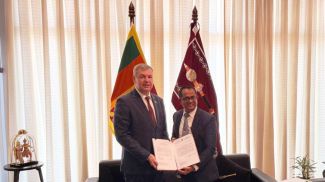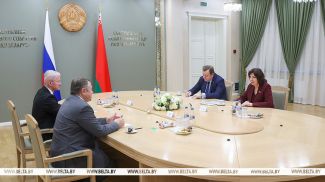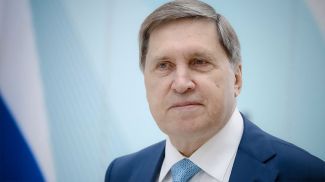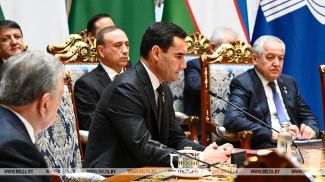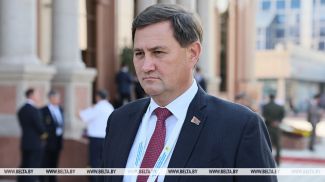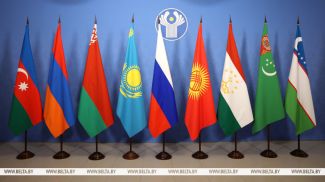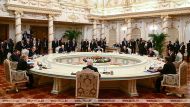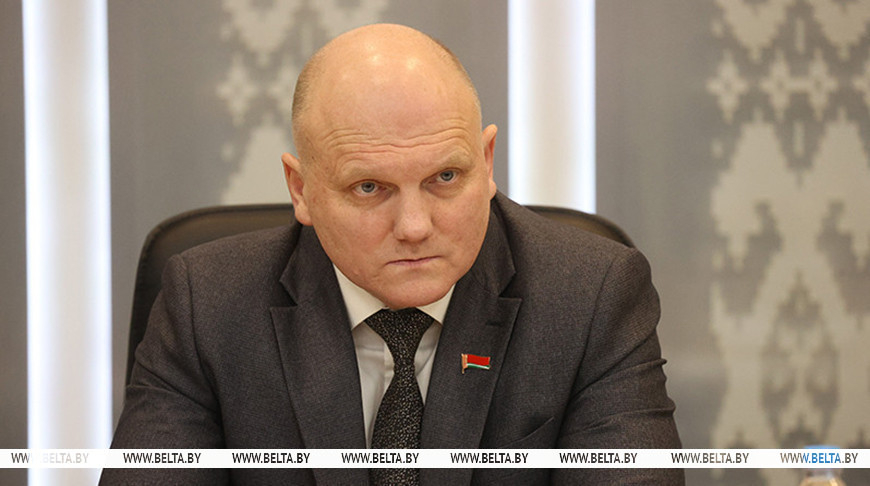
Ivan Tertel. An archive photo
MINSK, 22 June (BelTA) - In his recent decision to pardon 14 convicts, Belarusian President Aleksandr Lukashenko was guided by the humanitarian aspect and the intention to establish good-neighborly relations between the countries, Chairman of the State Security Committee of Belarus (KGB) Ivan Tertel told the media. The official took part in the meeting of Belarusian President Aleksandr Lukashenko with U.S. Special Envoy for Ukraine Keith Kellogg in Minsk, BelTA has learned.
The KGB head said that his agency was directly involved in organizing these events, taking into account a complicated situation in the region and the world. “The Belarusian president, and our state in general, is doing everything possible to reach a consensus to reduce the level of escalation,” he said.
According to Ivan Tertel, the Belarusian head of state has various meetings and contacts not only with the USA. “I think other aspects will be made public later, too. We have achieved this result with the USA,” he said. “The event that took place the other day is just one of many. The head of state has high-level contacts with other countries. There are many of them. Of course, it is not yet the time to talk about them. But we will surely do it later.”
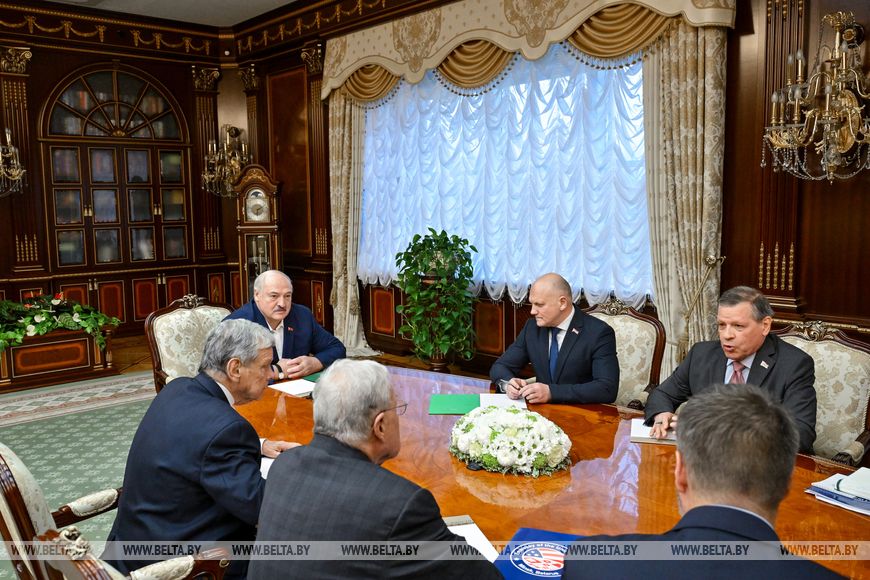
“I think that this gesture that the head of state showed to his neighbors, despite their policy which is neither good-neighborly nor balanced (and not for the benefit of their peoples), and the messages that our head of state sent to them, will be heard and we will see the same good-neighborly approach from their side. Hope is the last thing to die. Let’s hope it is not the case this time,” said Ivan Tertel.
According to him, the meeting with the American side was not spontaneous. This is a systemic work. It has been going on for more than a year. Representatives of the U.S. Administration met with the head of state at various levels and discussed a variety of issues, including international and domestic agendas. Ivan Tertel noted that General Kellogg is a special envoy of the U.S. President: “This indicates that the Republic of Belarus and the United States keep in contact on many matters that I would not like to dwell on. But the discussion of these matters can bring forward the resolution of situations in many regions. Especially in the region where we live.”
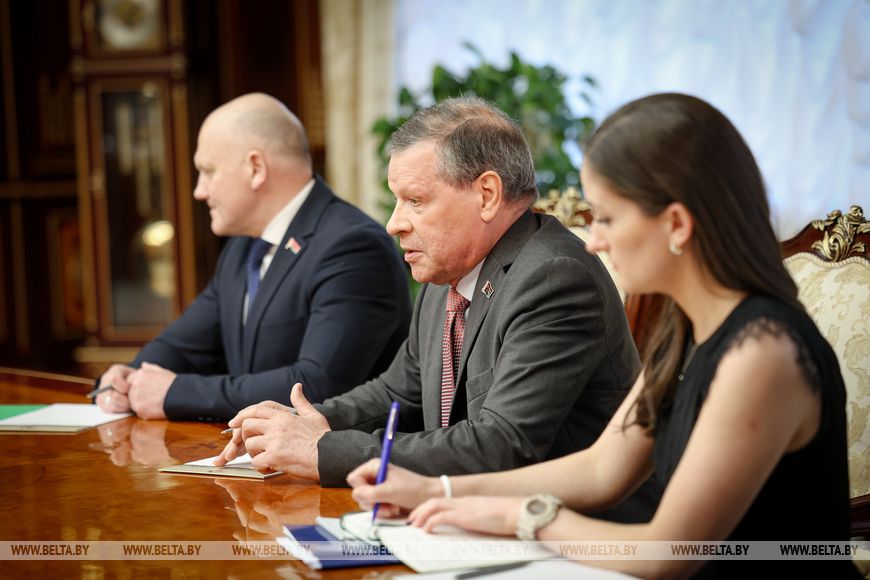
As for the preparation of the meeting and the decision on pardon, Ivan Tertel said that this was done in close contact with the Belarusian Ministry of Foreign Affairs. On the instruction of the president, all the proposals of the American side were carefully studied, taking into account various aspects related to the persons on the list provided by American partners. The Prosecutor General of Belarus was also involved in this work.
“We worked with the Prosecutor General, who also looked into each case thoroughly. There was a very detailed, sometimes heated discussion on each person. The next stage is the pardon commission under the president of Belarus. The commission comprises lawyers who verify everything. Only after all these stages, when there is a common opinion, and sometimes it does not coincide, [the proposal is submitted to the president]. As our legislation stipulates, our head of state makes the final decision. In this case, he also made the final decision. It is just that this process was particularly thorough. The entire work was especially thorough,” the KGB chief shared the details.
In his words, Aleksandr Lukashenko was very attentive to all aspects: “We understand that the criteria that the head of state was guided by were first and foremost humanitarian. We know the approach of our president. He prioritizes the interests of the family, especially those with minor children. We know that those on the list have serious issues, both family and personal ones. They must be taken into account.”
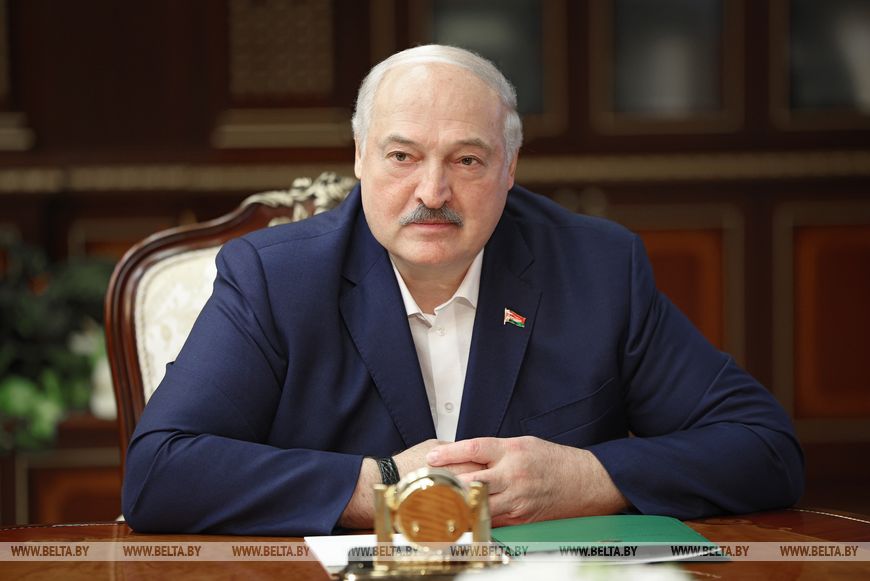
The second aspect is the need to develop good-neighborly relations with various countries in order to help de-escalate the situation. “If some cardinal decisions are not made to find consensus (as we see, even on today’s events), we may all find ourselves in a very, very difficult situation with consequences that we cannot even foresee at the present time,” the KGB head stressed.
According to the chairman of the KGB, the decision was taken to pardon a number of persons, including many foreign citizens. “Many of these persons have been convicted of crimes related to espionage against our state, crimes related to the security of the country, connections with foreign special services. As you know, there are no political prisoners here. There's no such category. Family circumstances prevailed in relation to some of the persons that have been pardoned,” Ivan Tertel added.
“Our head of state took this step at the request of the U.S. administration, realizing that it would lead to certain reciprocal moves from other states. And in general, perhaps we will be able to achieve some kind of consensus, and peace here, in Europe, and we will finally be able to reach solutions in a constructive manner,” he said.
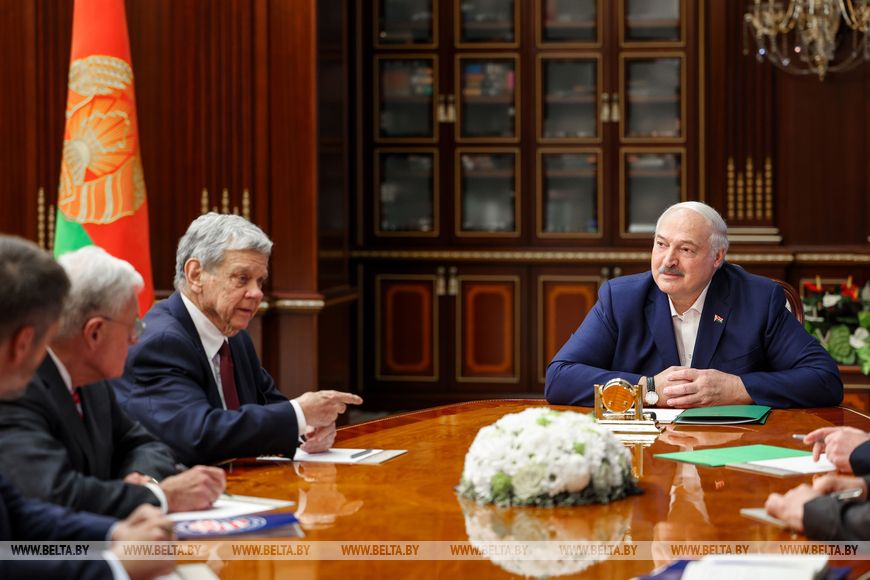
He noted that decisions on pardons always take into account the extent of participation in illegal activities: “We see from the general context that a number of these individuals were dragged into illegal activities, were manipulated. They were just ordinary performers. Those who manipulated them are now abroad, living a good life, wearing good branded apparel, enjoying very substantial benefits that they acquired, according to our data, by embezzling various funds.”
Ivan Tertel noted that the American side and President Trump saw these abuses and took restrictive measures with respect to the relevant funds in order to put a stop on siphoning off the U.S. budget. “Things in other countries are different. But it is a matter for the authorities of these states. Probably the people of these states, in particular Lithuania and some others, have the right to ask their government how they spend their hard-earned money that otherwise could be used to support the elderly, healthcare and children, or in general, to finance humanitarian projects rather than direct confrontation and attempts to destabilize the situation in Belarus. The Republic of Belarus has always been committed to peaceful policies,” the KGB chief said.
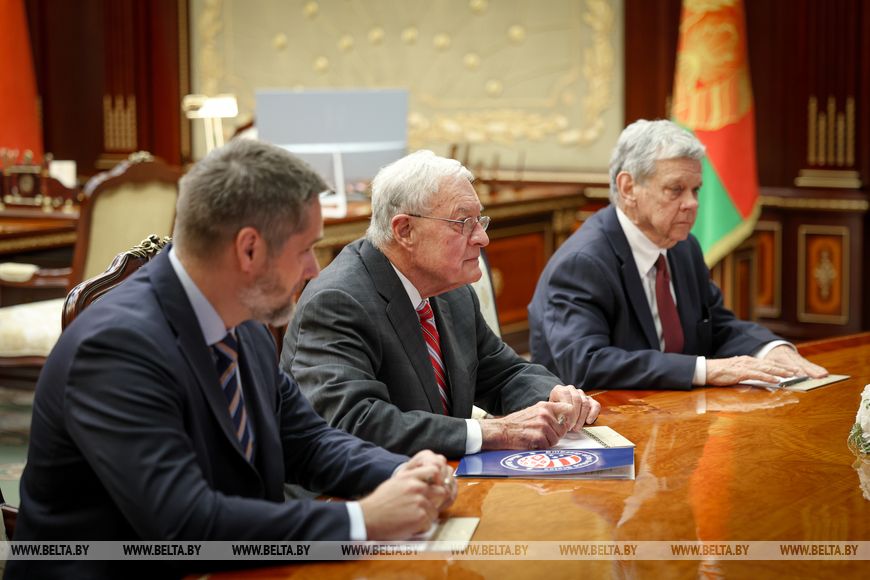
The Belarusian president has always advocated good-neighborly relations. Belarusians believe that the most important relations are sometimes with neighbors, not with family members.
“We were guided by this principle. The president was guided by this principle. He urges us to use this principle while working on other matters in all other avenues. We work together with the Ministry of Foreign Affairs, report to the head of state. He supervises the process and participates in these meetings,” Ivan Tertel said.




